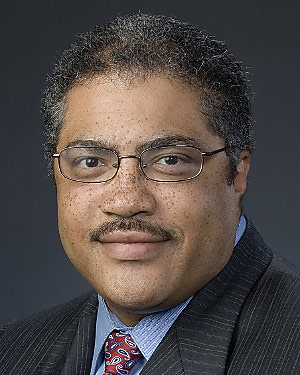-
Arthur Louis Burnett, M.D.

- Director, Basic Science Laboratory in Neuro-Urology
- Patrick C. Walsh Professor of Urology
- Director, Sexual Medicine Fellowship Program
Expertise: Cystocele, Enterocele, Erectile Dysfunction, Gender Affirming Care, Male Sexual Dysfunction
Primary Location: Johns Hopkins Outpatient Center (now called Levi Watkins, Jr., M.D., Outpatient Center), Baltimore, MD
-
Marisa Meyer Clifton, M.D.

- Director, Women’s Health, Brady Urological Institute
- Director, Urology Residency Program
- Director, Urology Robotic Education
Expertise: Bladder Stones, Kidney Stones, Lower Urinary Tract Reconstruction, Pelvic Floor Disorders, Pelvic Organ Prolapse
Primary Location: Johns Hopkins Bayview Medical Center, Baltimore, MD
-
Andrew Jason Cohen, M.D.

- Division Director, Benign Urology
Expertise: Benign Prostatic Hyperplasia (BPH), Erectile Dysfunction, Gender Affirming Care, Genitourinary Reconstruction, Hidradenitis
Primary Location: Johns Hopkins Bayview Medical Center, Baltimore, MD
-
Edward James Wright III, M.D.

- Director, Division of Reconstructive and Neurological Urology
- Director of Urology, Johns Hopkins Bayview Medical Center
Expertise: Incontinence, Lower Urinary Tract Reconstruction, Pelvic Floor Disorders, Pelvic Organ Prolapse, Urethral Stricture
Primary Location: Johns Hopkins Bayview Medical Center, Baltimore, MD
Neurourology
Urinary incontinence and voiding dysfunction are sometimes caused when nerve damage interferes with the complex series of interactions between the brain, nervous system and pelvic organs.
Also called neurogenic bladder, this can result from spinal injuries, neurological disorders and congenital malformations. Neurogenic bladder requires treatment from urologists who specialize in neurourology.
Request An Appointment Request An Appointment
Schedule by phone
Adults: 410-955-6100
Pediatrics: 410-807-3398

Neurourology: Why Choose Johns Hopkins
- You can rely on the extensive neurourology expertise of our physicians to help manage your urinary incontinence and keep your kidneys safe from high-pressure voiding that can result from neurogenic bladder.
- Our team has experience with a range of therapies for neurogenic bladder, including medical management, bladder augmentation, Botox therapy and sacral neuromodulation (electrical stimulation of the sacral nerve).
- We offer neurourology patients access to the latest advances in urologic surgery, including robotic-assisted bladder augmentation, to help minimize post-operative complications and promote faster recovery.
- Neurogenic bladder treatment involves a variety of experts. We work hand in hand with neurologists, physical medicine and rehabilitation doctors, and other specialists as needed to ensure every aspect of your care is integrated.
Neurourology Experts
Our experts are part of a multidisciplinary team that understands the complexities of treating urinary incontinence and voiding dysfunction caused by neurological problems.
What to Expect
The foundation of neurourology is careful diagnostics and surveillance of your bladder health. You will receive compassionate, comprehensive care from a multidisciplinary team of specialists, from your initial diagnosis through treatment and follow-up.
Diagnostic testing will likely be necessary to help guide treatment decisions between you and your doctor. We offer state-of-the-art urodynamic testing, including in our new procedure room at our Green Spring Station location. During this series of tests, a catheter is inserted and computers measure several aspects of your lower urinary tract function, including how well the bladder holds and empties urine.

